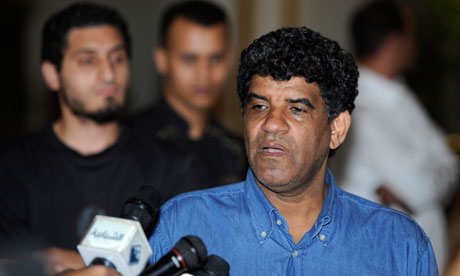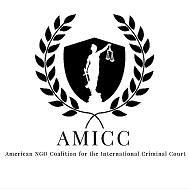 |
| ICC President Judge Sang-Hyun Song speaking at the World Leaders Forum at Columbia University on February 12, 2013. Photo: Eileen Barroso / Columbia University |
Judge Sang-Hyun Song, President of the International Criminal Court (ICC), spoke on “The International Criminal Court and the Fight Against Impunity for Atrocity Crimes” yesterday at Columbia University’s World Leaders Forum. Throughout his talk, in which he spoke from a personal perspective about his own experience in war and as a judge, Judge Song highlighted the importance of the ICC in the effort to end impunity. He declared the Court to be “at the forefront of the fight and a central element of the broad global system that brings together international organizations to address the worst international crimes.” Lee C. Bollinger, the President of Columbia University, introduced Judge Song. The event was co-sponsored by the Institute for the Study of Human Rights of which AMICC is a program.
Judge Song shared his first encounter with conflict, when he lived through the Korean War at the age of nine. The war is where he first saw the “immense suffering and destruction war creates.” Judge Song explained he chose to pursue a career in law, as he believes that law can prevent the worst violence. Though Judge Song survived the Korean War and went on to live in peaceful nations as he pursued his career, he pointed out that peace is seen as an “unattainable luxury” in many places in the world today. This reality reinforces the importance Judge Song sees to keep working towards the goal of eradicating mass violence. He urged that for those living in peace, “we must always ask ourselves what we can do with this gift.”
Judge Song reviewed the current situations and cases at the Court, and how each of these reflects that the Court is at the heart of the movement to end impunity. He emphasized that the ICC is not part of the UN, which is a common misconception, but instead is an independent body. However, he noted that peace and justice are interlinked. The relationship between the ICC and UN was established to be mutually reinforcing so both peace and justice could be achieved.
He addressed the challenges facing the Court, such as the failure to arrest and transfer individuals charged in the Darfur and Libya situations, and highlighted the importance of the cooperation of ICC States Parties. Judge Song emphasized that the support of States Parties and UN Security Council is imperative to the Court’s ability to function effectively. He believes states’ actions, or inactions, will determine the success of the Court. Judge Song also emphasized that ICC is a Court of last resort, and that states retain primary jurisdiction which is both a right and responsibility of each state.
Judge Song concluded with reflections on his own place in the ICC as a "world leader" of an international organization. He admitted, “to lead is to be alone in the eye of the storm. I carry the responsibility for the actions that I take.” He also stated that as president he is “first among equals” with his colleagues at the Court. The ICC is not a hierarchical institution, but made up of independent judges, Prosecutor and Registrar. This theme of the importance of independence ended his remarks: “The ICC cannot function unless it maintains its independence, and it must stand apart as a non-political judicial institution.”
In the questions and answers following his remarks, Judge Song spoke about his role promoting the universality of the ICC and the challenges faced in convincing large countries, such as Russia, China, India and the US, to join the Court. While acknowledging that domestic political realities may for now keep these countries outside of the ICC, such as the 67 votes requires in the Senate in order to permit US ratification, he expressed his appreciation for the Obama administration's support and cooperation, such as sharing intelligence and helping to support ICC arrests. President Song ended on a positive note. He declared that he was positive that one day the US will join "the ICC family" because the principles that the court defends are fully in line with American core values.
The webcast of the event will be archived on the World Leaders Forum website.



